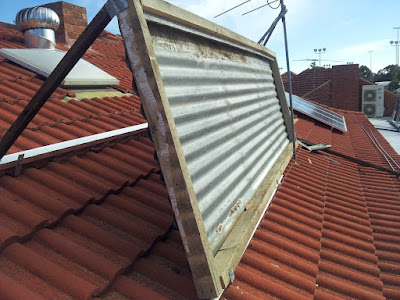Types of Industrial Roofing | Naples Roofing
Industrial roofing systems come in a variety of forms, materials, and installation methods. The slope of the roof, ventilation systems, and probable weather conditions all play a role in determining the appropriate type of roofing for an industrial structure. Naples Roofing is among the best commercial and industrial roofing contractors in USA offering roofing installation, repair, replacement, maintenance, snow removal, etc services. Here are the various forms of industrial roofing and their advantages.
TPO Roofing
Single-ply membrane roofing is made of thermoplastic polyolefin (TPO). TPO roofing membranes are made from ethylene, propylene, rubber, and fiberglass and come in various widths, including five, ten, twelve, and twenty feet wide sheets.
TPO roofs are typically white to reflect light and keep the interior of the building cooler. TPO can now be purchased in a variety of hues, including greens, tans, and reds, due to improvements in the roofing business. On flat roofs, this type of roofing is commonly used.
TPO is an excellent solution for restaurants and other areas where their ventilation systems generate oils because it is highly resistant to fat and oils. The following are a few of the advantages of TPO:
High durability
Wind resistance
Fire resistance
UV resistance
Resistance to chemical exposure
20+ year lifespan
Puncture resistance
Thermoset (EPDM) Roof Membrane
Another type of single-ply membrane roof is thermostat roofing, commonly called EPDM roofing. For many years, it has been regarded as a reliable roofing alternative because it is made of a rubbery material. This type of roofing is available in both black and white and is typically found on low-slope structures. EPDM roofs are available in a variety of widths, from 7.5 to 50 feet, and two thicknesses, 45 and 60 mils.
The EPDM has entirely adhered to the roof or the EDPM system is mechanically attached to the roof, and the seams of the roofing system are sealed with liquid adhesives or specially designed tape.
Some of the advantages of EPDM roofing are as follows:
Cold resistance
Fire resistance
UV resistance
Alcohol and solvent resistance
Acid resistance
Easy installation, maintenance, and repair
Metal Roofs
When it comes to industrial structures, most people think of metal roofs. Metal roofing is an obvious solution for regions that need robust protection against the elements due to its great durability. It is frequently used on pitched roofs.
The most common complaints with metal roofs in the past were their susceptibility to rust and dents. Because of technological developments, most metal roofs are now highly resistant to denting and can endure up to 40 years without rusting.
A hidden-fastener system or an exposed-fastener system is used to install metal roofing. Hidden-fastener methods are increasingly popular because of their longevity and distinctive appearance of raised seams that run the length of the panel.
Corrugated galvanized steel, stone-coated steel, aluminum, copper, tin, and stainless steel are just some metal roof materials available. Each type has a distinct appearance and level of damage resistance.
The following are some further advantages:
Versatility
High fire resistance
Wind resistance
High durability
Holds up well under snow
Built-up Roofing
Built-up roofs (BUR) are named by the process of application rather than the materials utilized in their construction. This type of roofing has been around for a long time and is instantly identifiable by its gravelly texture. BUR roofing systems are laid in many layers, with tar or asphalt as the base layer and gravel as the top layer. Built-up roofs are only suitable for flat or low-sloped roofs.
Benefits of BUR roofing include:
Waterproof seal
High durability
Low maintenance
Low cost
UV resistance
Modified Bitumen
Modified bitumen roofs are also installed on roofs with little to no slope, and are also referred to as built-up roofs because of their comparable application procedure. In contrast to built-up roofs, the layers in a modified bitumen roof are solid rather than liquid when applied. Bitumen, or naturally occurring solid petroleum, is blended with another substance, such as fiberglass, to create each layer.
Three-foot rolls are heated with a torch while the material is spread out on the roof surface during installation. A top layer of gravel, similar to built-up roofing, is generally applied on modified bitumen roofing to provide additional protection from UV rays.
Modified bitumen roofing is resistant to intense foot traffic, making it appropriate for buildings with high foot traffic.
Among the other advantages are:
Weather-resistance
Exceptional toughness
Cracking resistance in subzero temperatures
Very low maintenance
It’s strong even under heavy foot traffic
Naples Roofing is among one of the best commercial and industrial roofing contractors in USA offering various roofing services such as roofing repair, installation, replacement, maintenance, tracking, emergency disaster relief, and snow removal. They provide various commercial and industrial roofing systems along with a sheet metal shop. They have more than 45 years of expertise in offering these services for various commercial and industrial structures. Contact them today to request an estimate for your required services!




Comments
Post a Comment